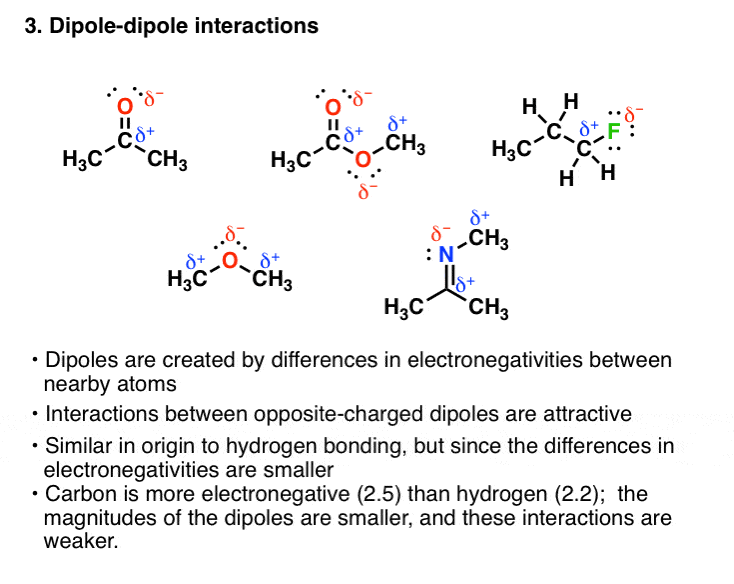Why HBr has stronger attraction between molecules than CH3NH2?
Chemistry Asked by Molly_K on October 5, 2021
Which of the following compounds exhibits dipole-dipole forces as its strongest attraction between molecules?
a) $ce{CO2}$
b) $ce{CH3NH2}$
c) $ce{Kr}$
d) $ce{H2}$
e) $ce{HBr}$
From what I understand, $ce{CH3NH2}$ has an H-bond and it’s the strongest form of dipole-dipole. So I thought that would be the answer.
I also knew that $ce{HBr}$ shows the greatest electronegativity difference between $ce{H}$ and $ce{Br}$ atom, it would be a polar covalent bond (?!).
In that case, $ce{HBr}$ may have stronger attraction between molecules than $ce{CH3NH2},$ but it is not dipole-dipole. Isn’t that correct? Then shouldn’t the answer be $ce{CH3NH2}$ instead of $ce{HBr}?$
I must have some concept issues here.
One Answer
EDIT (after title edited): $ce{HBr}$ doesn't have stronger interaction than $ce{CH2NH2}$, but it has dipole-dipole interaction as the strongest forces between it's molecules, which is obviously weaker than H-bonding.
Hydrogen bonding is the strongest intermolecular attraction. It is a type of dipole-dipole interaction1, but it is specific to Hydrogen.
In general, dipole-dipole interactions are considered weaker than H-bonding. The relative strength of forces are as follows,
Hydrogen bonding > Van der Waals dipole-dipole interactions > Van der Waals dispersion forces
As per your question, (a), (c) and (d) have dispersion forces (as they're non-polar), while (b) has H-bonding as it's strongest interaction (not dipole-dipole).
Finally, as only (e) has dipole-dipole as it's strongest attraction between molecules, hence it's the answer.
Notes:
1: Dipoles are created due to difference in electronegativity. Below image shows that there is sufficient electronegativity difference to create a dipole. H-bonding and dipole-dipole interactions have same origins.
(Source: Master Organic Chemistry)
Correct answer by Rahul Verma on October 5, 2021
Add your own answers!
Ask a Question
Get help from others!
Recent Questions
- How can I transform graph image into a tikzpicture LaTeX code?
- How Do I Get The Ifruit App Off Of Gta 5 / Grand Theft Auto 5
- Iv’e designed a space elevator using a series of lasers. do you know anybody i could submit the designs too that could manufacture the concept and put it to use
- Need help finding a book. Female OP protagonist, magic
- Why is the WWF pending games (“Your turn”) area replaced w/ a column of “Bonus & Reward”gift boxes?
Recent Answers
- Joshua Engel on Why fry rice before boiling?
- Peter Machado on Why fry rice before boiling?
- haakon.io on Why fry rice before boiling?
- Lex on Does Google Analytics track 404 page responses as valid page views?
- Jon Church on Why fry rice before boiling?

](https://i.stack.imgur.com/zxkun.png)